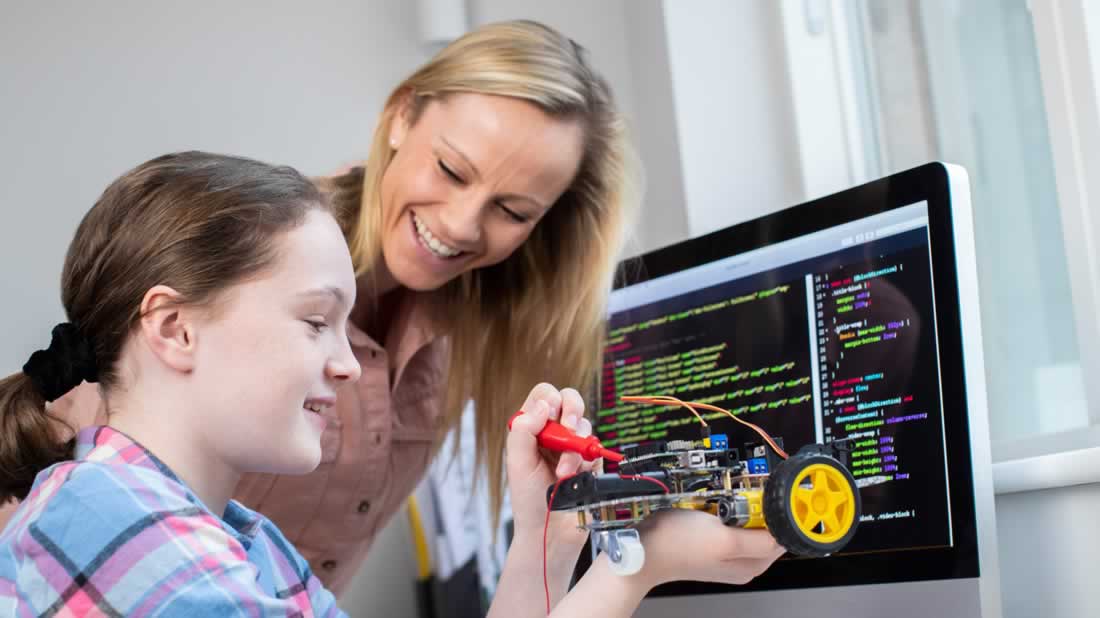
The coming coding revolution
English language literacy and coding literacy share some overlap—and the ability to work with data and computer systems will prove pivotal for success
In the 1400s, sons of good families were sent to be taught Latin by the Church. The monks who taught them weren’t trained as educators, and they made heavy use of corporal punishment. So it wasn’t much fun to learn to read back then.
In this period, no one assumed that everyone needed to be able to read–quite the contrary. Reading was for religious purposes and learning to read English was seen as unnecessary at best, heretical at worst.
But people who knew how to read and write English were guaranteed a spot in the new middle class. Businesses, now springing up in the towns, needed literate people to work in offices, reading and writing contracts, invoices, rules, and regulations. The Church thought that learning to read English was a waste of time–Scripture was all that mattered. But they just didn’t see what was coming. English was the language of business, and capitalism would soon replace the feudal economic system.
By the mid-1700s, a majority of the English population could read, and literacy was increasing quickly. The Industrial Revolution followed soon after: Once people generally could read, the potential was there for a whole new type of workforce.
I think we’re now going through a phase a lot like the beginning of the Renaissance, which is why I think we need to teach all the kids to code.
I know, it may sound crazy. An administrator at the Oregon Board of Education put it this way: “Not everyone is going to be a programmer, just like not everyone is going to be a mechanic. It would be like requiring everyone to take auto shop.”
Sure, right now, today, in 2021, you don’t need to know how to write Python or Javascript to participate in the job market. It’s helpful if you do, and you can make more money, but there are jobs for you without it.
But wages are stagnating–unless you work with information. Jobs that pay well tend to require the ability to work with data and computer systems — and this is more and more the case every year. Before long, the middle class will be working primarily with data, code, AI, and machinery; people without those skills will gradually find themselves sharing a thinner and thinner slice of the pie.
Not everyone needs to be a software engineer, but basic skills with coding and data are a much lower bar; just as during the Renaissance, you didn’t need to write a book to work in an office–you just had to be able to read an inventory.
This new workforce will enable us to aggressively pursue promising technologies such as synthetic biology, nanotechnology, AI, automated systems such as self-driving cars, and many others. This, in turn, is likely to lead to a new technological age.
So where does this leave us? We’re trying to teach kids to code, but it’s not working.
Learning to code is often a truly painful experience, even though it ought to be fun. It’s not much of an exaggeration to say that code learning might as well be taught in Latin (students see the same error messages that engineers see–and these messages are not at all understandable to laypeople).
We’re still at the very beginning of the shift towards the information economy. Only a tiny fraction of our population can code, and a few more people are comfortable working with data.
The literacy rate is maybe…3 percent?
In summary:
- Only a small percentage of Americans can write a computer program or an SQL query.
- Coding is taught by a close-knit ingroup of specialists (like a priesthood) who are not primarily trained as educators.
- Coding is often seen as not important for young people to know, despite abundant evidence to the contrary.
- Coding is made unnecessarily difficult to learn.
The parallel with English language literacy in the Renaissance should be clear enough. There are some important differences, however:
- We have a lot of schools and teachers, even if they don’t effectively teach coding just yet.
- Society and technology are changing much more quickly now than in the 1400s.
Because of these differences, I’d expect it to take much less than 300 years (maybe 50 years?) before a majority of Americans can code. But I suspect we’ll see a similar kind of revolution: Once more than half the people can code, the economy will be transformed by rapid technological change.
That revolution on the horizon may look threatening, as the Industrial Revolution was, with automation taking over many of the jobs being done by people today. But it’s coming–and I think we should try to make sure the benefits extend to underserved groups as much as possible. To make that happen, we need to stop teaching in Latin–that is to say, we need to make it easier and more fun to learn to code.